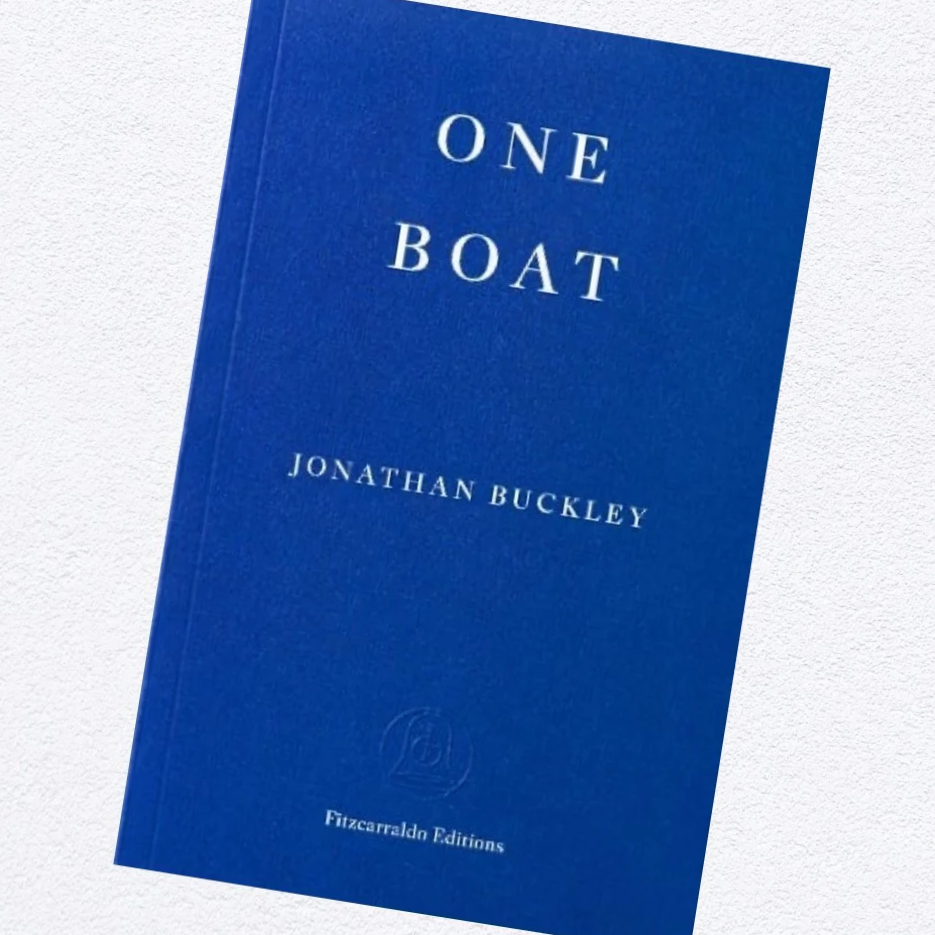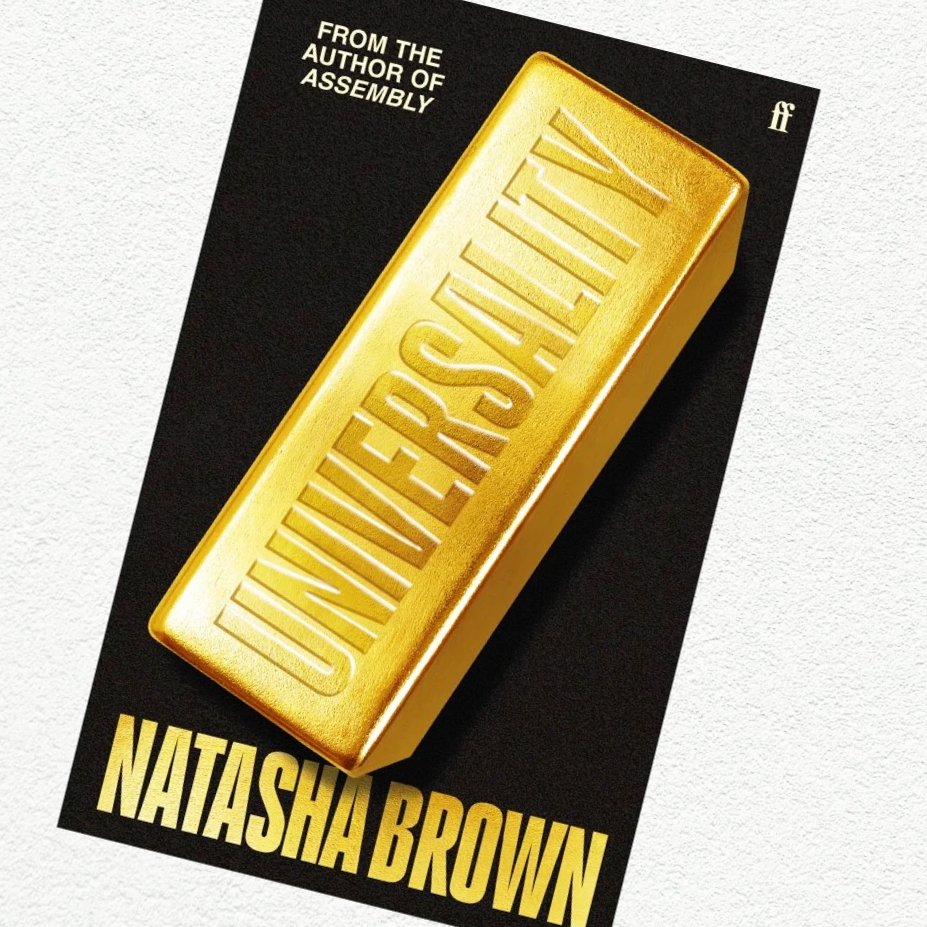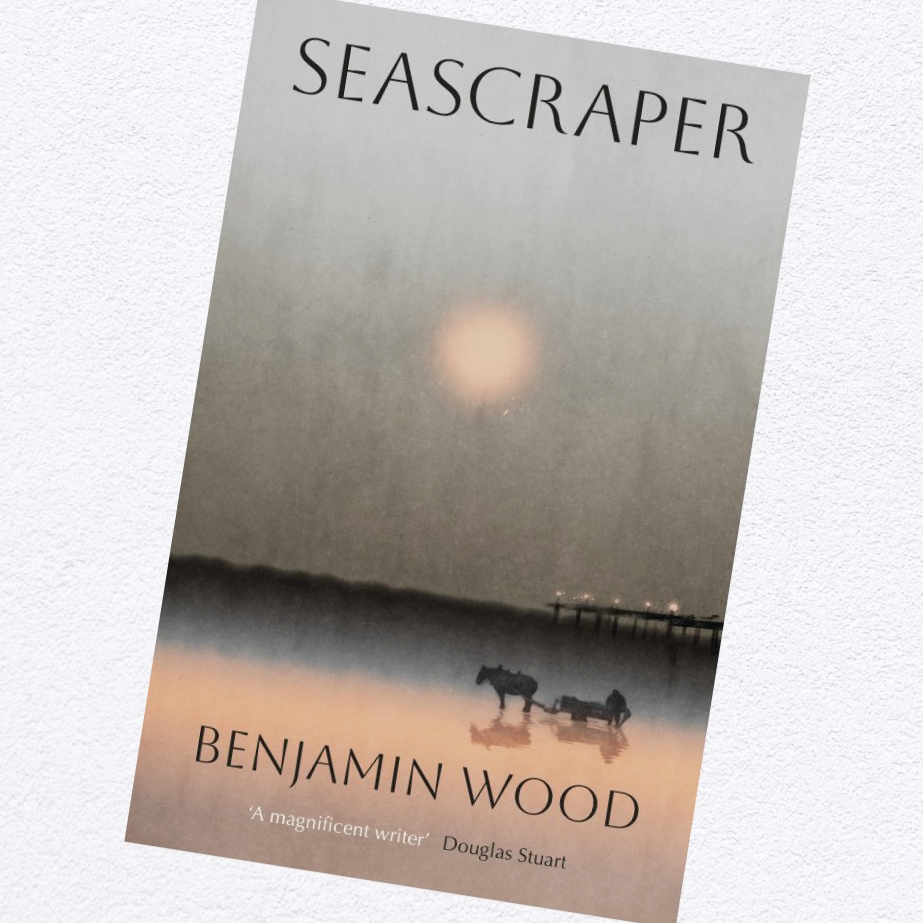
Flashlight (2025)
Flashlight begins with the disappearance of Serk, a Korean émigré and academic, during a walk on along the coast in a small Japanese town with his young daughter, Louisa. While Serk is presumed drowned, Louisa washes ashore hours later, traumatized and unable to recall what has happened. The books subsequently spans decades and continents, as Louisa and her American mother, Anne, struggle to cope with their grief and the mystery of his vanishing. This sits against the complex geopolitical backdrop of the late 20th century, particularly focusing on the lives of Korean immigrants in Japan and the unsettling history of North Korea.
Audition (2025)
Audition is very much a novel of two halves. A cliche, and one which has come up more than once in my recent reading, but never more true than here. In its first part, we are introduced to an unnamed female narrator, preparing for a role in an upcoming play, in which she is notably struggling to nail a key scene. A young man, Xavier, meets her for lunch in an upmarket restaurant, having previously explained that he believes she may be his mother (a seeming impossibility as the narrator has never given birth). They are observed briefly by her husband, Tomas, an art critic, who seems somewhat weary of her affairs and is behaving a little shiftily himself.
The Loneliness of Sonia and Sunny (2025)
The Loneliness of Sonia and Sunny is an epic family saga centring on the lives of Sonia Shah and Sunny Bhatia, two young people from India whose paths intertwine. The story is initiated by a clumsy and half-hearted failed attempt to engineer an arranged marriage between the two by their neighbouring families in India. Sonia, an aspiring novelist who has been studying in Vermont, returns home to India after a deeply troubling relationship in New York with a memorably deranged and controlling older artist named Ilan de Toorjen Foss. She is haunted by this encounter, believing he may have cast a "dark spell" on her (which manifests - seemingly physically - as a ‘ghost hound’ later in the novel). Sunny, a struggling journalist, is working for the Associated Press in New York City, living in Brooklyn with his American girlfriend Ulla. He too returns to his home country, initially to help his friend Satya in his own attempts to secure an arranged marriage.
The Rest of Our Lives (2025)
The Rest of Our Lives focuses on the 50-something law professor Tom Layward, based in New York with his wife Amy and about to see their youngest child Miri off to college in Pittsburgh. We learn early on in the novel that Amy had cheated on Tom over a decade ago, at which point he had privately vowed to leave her after their children had both left home. As they prepare for Miri’s departure, both experience some degree of ‘empty nester’ anxiety and Amy decides to stay home rather than face the emotional trauma first-hand.
The South (2025)
The South is the first book in a planned quartet that centres on a family navigating a period of significant change both in Malaysia and in their own lives. The main events of the novel are set around 1997 and the Asian financial crisis, following the Lim family as they travel from their home in Kuala Lumpur to a dilapidated farm they have inherited in Johor, southern Malaysia. The central plot of the novel revolves around 16-year-old Jay's coming-of-age and sexual awakening. On the farm, he meets Chuan, the son of the farm's manager, and a transformative relationship develops between them over the course of the summer.
Flesh (2025)
Flesh is set over most of the life of one man, István, with its main action taking place in his home country of Hungary, and London. We first meet István as a fifteen-year-old, living with his single mother in a new town. In an unsettling first chapter, István is (initially reluctantly) drawn into a sexual relationship by a much older woman, a friend of his mother’s. This relationship ends in tragedy, with István implicated in the death of her husband and subsequently serving time in a juvenile prison. The rest of the novel jumps forward in time for each chapter, often skipping significant moments in his life and focusing instead on their impact on him. Following a stint in the army during the 2003 war in Iraq, he moves to London where several chance developments lead him to a life of luxury. Up to a point, the novel seems like a classic ‘Rags to Riches’ narrative, but in its later chapters, we see István’s life gradually collapsing around him, and his eventual return to a relatively humble life in Hungary.
The Land in Winter (2024)
The Land in Winter takes place in a remote community in the West Country of England during the famously harsh winter of 1962-63 (known as the ‘Big Freeze’). It focuses on two couples, neighbours separated by a field. Eric Parry is a local doctor, well-established in the community and married to Irene. They’re ostensibly a picture-perfect upper middle class couple, hosting dinner parties and very much conscious of their elevated status in their small community. The farm nearby has recently been bought by Bill Simmons, on something of a whim. He lives there with his relatively modern young wife Rita, who is adapting from her previous party life in the bars and clubs of Bristol. While Bill is also not exactly poor, he’s from an immigrant family (though not obviously) and the status of ‘farmer’ in the 1960s still very much carried an implication of lower social status than the Parrys. While Eric and Bill struggle to connect (or even really contemplate that they would), their wives are both pregnant and begin to form an unlikely bond.
One Boat (2025)
One Boat is told from the perspective of Teresa, a contract lawyer and aspiring author from the UK. She has recently lost her father and is making a return visit to the same Greek coastal town she visited after the death of her mother nine years before. The novel jumps back and forth between Teresa’s encounters with the same characters nine years apart: notably Xanthe, the owner of a cafe she frequents; Niko, a younger diving instructor with whom she had an affair on her first visit but is now married with a daughter; and Petros, a long-time resident also originally from the UK with whom she has lengthy philosophical conversations. There’s also a focus on another Englishman, John, who she met on her first visit and who told her of his anger and desire for revenge for the violent death of his nephew.
Universality (2025)
Universality begins with a long first section written in the style of a journalistic ‘long read’. It recounts the tale of a crime which took place at an illegal rave on a Yorkshire farm, in which the leader of a radical anarchist movement is bludgeoned with a gold bar by a young man called Jake. In the article, presented as a kind of moral parable about class and wealth based divisions in our society, we are introduced to Jake’s mother, a populist ‘anti-Woke’ columnist who goes by the name of Lenny. We additionally meet Richard Spencer, the owner of the farm whose gold bar was used in the crime. He’s a wealthy banker who is presented as symptomatic of the ills of capitalism.
Seascraper (2025)
Seascraper begins by introducing us to Thomas Flett, a young man in a Northern English coastal town in the 1960s who works in the seemingly already slightly anachronistic profession of a “shanker”, using a horse and cart to collect shrimp in often hazardous conditions from a beach littered with “sinkpits”. He lives with his mother, who had him as a teenager and has been shunned by the local community. She relies on him to earn money, which he does through his unsociable, repetitive and physically exhausting work.
The Mars Room (2018)
The Mars Room has as its protagonist Romy Hall, a San Francisco single mother and erstwhile stripper who is serving two life sentences in Stanville Correctional Facility for murder. She has killed a man, that much is true, but a man who was going to great lengths to stalk her, having struck up what he saw as a ‘relationship’ in the Mars Room, the strip club Romy performed in. That she has committed a crime is not disputed, but the fragments we see of her trial expose the fact that the criminal justice system leaves no room for nuance. Her primary concern in prison is initially survival, but shifts to the wellbeing of her young son Jackson once she hears that her mother, his guardian, has died.
The Accidental (2005)
The Accidental takes place mainly in a sleepy village in Norfolk, where a middle class family from Islington, London are spending their summer. Eve Smart is the family’s mother, and a novelist who draws on real-life stories for her fiction, and is currently suffering from writer’s block. Her partner is Michael, also a writer and a university professor in London, who is prone to infidelity with his students. Eve’s daughters from a previous marriage (to an Adam, no less) are Astrid, a 12 year old girl with a love for photography and a delightful way with words, and Magnus, an older teenager with a scientific mind and a serious (and justified) sense of guilt hanging over him over an incident that happened before the holidays.
Western Lane (2023)
Western Lane follows Gopi, an 11-year old British-Indian Jain girl living in suburban London in the 1980s, who has recently lost her mother. Alongside her two older sisters, she is left in the care of her Pa, who is clearly also struggling with grief despite a seeming lack of emotional empathy and uncommunicative nature. Both Gopi and her Pa channel their grief into an obsession with squash, training at the titular Western Lane centre where Gopi meets Ged, a white boy with whom she becomes quietly infatuated, and his mother, with whom Pa finds a connection.
Study for Obedience (2023)
Study for Obedience is something of a difficult one to summarize. It’s a short book but in no senses a simple one. The unnamed female narrator arrives in an unnamed Northern European country (seemingly Scandinavian or Baltic), to tend to the needs of her successful oldest brother. Her own background seems fairly obviously Jewish, a fact that inspires hatred in the local residents, seemingly in part down to their past as collaborators (at least) in major atrocities (most probably the Holocaust, though it isn’t specifically named) against her people. Various troubles in the town, largely involving death of or disruption to local pets and farm animals, are attributed by the locals to her, and she is avoided, feared, and seemingly plotted against by the residents. With her brother frequently away on business, and she unable to speak the language, the whole thing has a fairly dense layer of mystery about it.
If I Survive You (2023)
If I Survive You is a mostly linked short story collection, based on the immigrant experience of a Jamaican family who moved to Miami following the turbulence in their home country in the 1970s. For much of the book, our focus is the somewhat autobiographical-seeming life of Trelawny, the family’s younger son, though we do also get stories told from the perspective of his father, his older brother Delano, and in the biggest departure of the collection, his cousin Cukie. The book deals with the struggle of survival in the face of everyday racism in the US, exacerbated by crises both personal and national - the latter including the major (and disproportionately racialised) impact of Hurricane Andrew and the 2008 Financial Crisis.
Pearl (2023)
Pearl tells the story of Marianne, a young mother who is reflecting on the loss of her own mother, who disappeared (presumed dead) when she was eight years old. Left with her father Edward and baby brother Joe, she has spent her life struggling to understand her mother’s motives, grieving both for her mother and for the family home which they had to abandon in the wake of her loss.
Prophet Song (2023)
Prophet Song focuses on Eilish, a microbiologist and mother of four (ranging in age from a baby to a seventeen year old) living in Dublin. In the background is the looming threat posed by a new authoritarian government in Ireland. Her husband Larry is an official in the Teachers’ Union, at the start of the novel still absorbed in his work and organising protests against the new government, believing the protections he has been used to in a democratic society still apply. Relatively rapidly, though, we learn that this is a new and significantly darker world, in which protests are violently suppressed and Larry himself is taken in for questioning by the stasi-esque Garda National Services Bureau (GNSB). Within days, he has disappeared, along with many other men in Eilish’s immediate circle.
The Bee Sting (2023)
The Bee Sting is something of an epic at 600+ pages, focusing on a fairly affluent family in small-town Ireland, in the aftermath of the 2008 Financial Crash. It's a novel of perspectives, with its lengthy first four sections each seen through the eyes of a different family member.
This Other Eden (2023)
This Other Eden is a fictionalised version of the story of Malaga Island, off the coast near Portland, Maine. The small island was historically home to a mixed interracial community from the Civil War until 1911, when all of its residents were forcibly evicted by the state. Relatively little is conclusively known about the origins of the settlement on the island, with much of its history until recently only having been told by prejudiced accounts which treated the islanders as outcasts and 'degenerates'. Harding creates a version of the island's history, renaming it Apple Island after the dreams of his version of the first settlers, an escaped slave and his Irish wife.
In Ascension (2023)
In Ascension is a novel is five parts, a languid yet grandiose journey that takes us from the deepest depths of our oceans to the farthest reaches of the solar system, set around a decade from now. Its protagonist is Dr Leigh Hasenboch, who we first meet in Rotterdam, in a section that focuses on her childhood. Her father, Geert, worked on flood defenses in the Netherlands, a centuries old challenge that is becoming ever more impossible as the climate breaks down, causing a similar deterioration in Geert's mental health, which in Leigh's telling we understand to be a motivator behind his outbursts of severe violence towards his daughters (her younger sister, Helena, is crucial later on.)




















